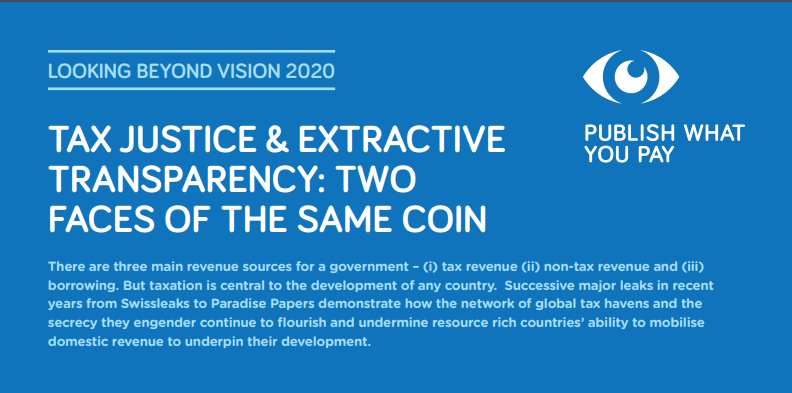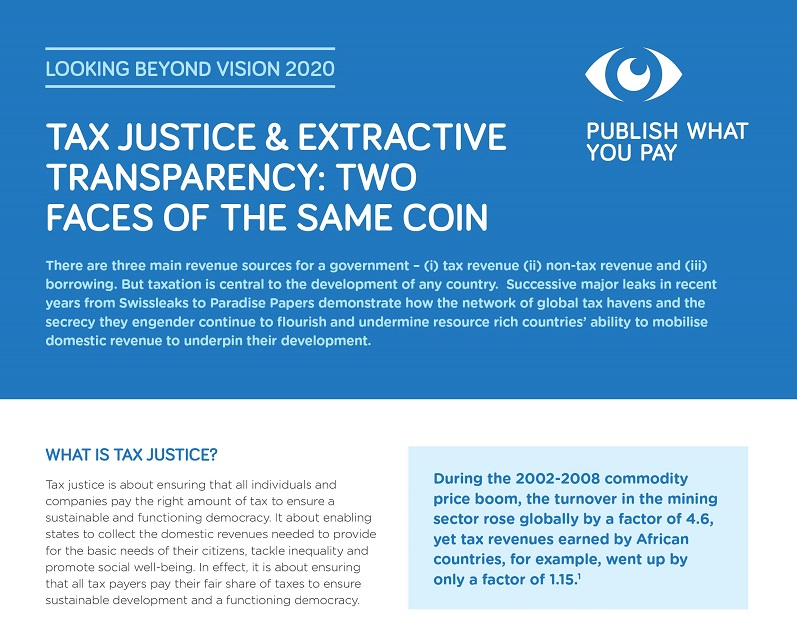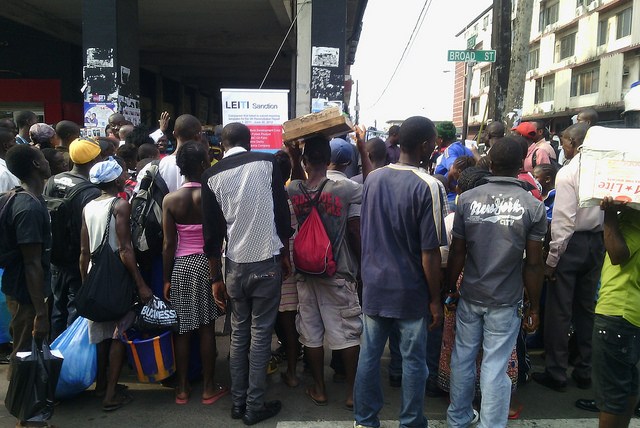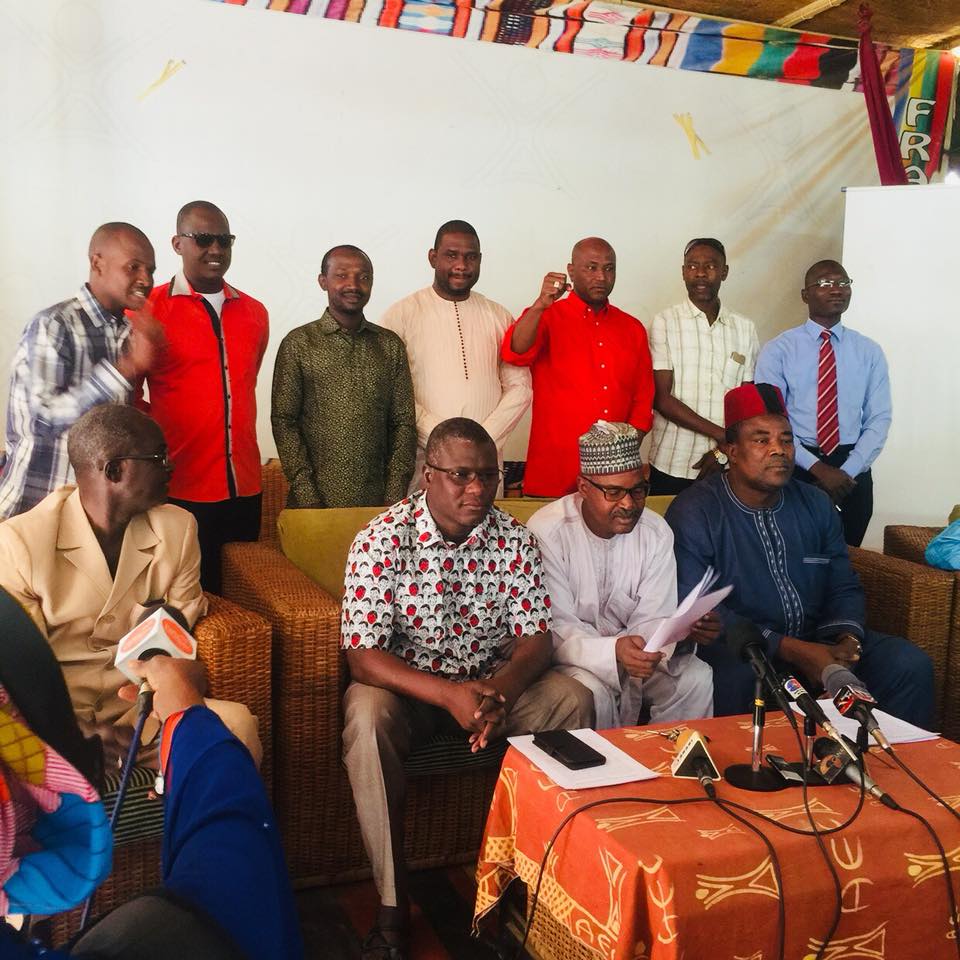News and resources
Explore our publications on a wide range of topics, to find the powerful facts, stories and approaches that underpin our work to make the extractive industry more open, accountable and participatory.
Tax justice – an important agenda for Publish What You Pay in Eurasia
On 24 April 2018, Publish What You Pay (PWYP) hosted a webinar on tax and extractives as part of our ongoing engagement with PWYP members around the world to inform the PWYP 2020-2025 global strategy. Members of the movement and other civil society organisations from Azerbaijan, Kazakhstan, Kyrgyzstan, Mongolia and Tajikistan participated in the webinar. […]
Urgent: Free our colleague Ali Idrissa, jailed for doing his job
Our colleague and friend, Ali Idrissa, is in jail. By using spurious charges against him for the third time, the government of Niger pursue their disgraceful harassment of the anti-corruption movement. I urge them to see sense and free Ali and his fellow campaigners immediately. One of the world’s largest exporters of uranium, Niger has […]
Urgent: Free our colleague Ali Idrissa, jailed for doing his job
Our colleague and friend, Ali Idrissa, is in jail. By using spurious charges against him for the third time, the government of Niger pursue their disgraceful harassment of the anti-corruption movement. I urge them to see sense and free Ali and his fellow campaigners immediately. One of the world’s largest exporters of uranium, Niger has […]
Why is Tax Justice central to the accountability agenda in the extractives sector?
On 20 April 2018 PWYP hosted a webinar on tax and extractives as part of our ongoing engagement with PWYP members around the world to inform the PWYP 2020-2025 global strategy. Kwesi Obeng kicked off the conversation with a presentation of the key ideas in his discussion paper, with respondents Daniel Mule (Senior Policy Advisor […]
Joint Press Release: Niger – Diplomatic representatives must act for the immediate release of arrested human rights defenders
Organisations including Amnesty International, Front Line Defenders, Publish you pay, and Tournons La Page are urging diplomatic representatives in Niger to firmly condemn human rights abuses and restrictions on civic space by asking for the immediate and unconditional release of human rights defenders detained for exercising their right to peaceful protest. In a joint open […]
Open letter for the release of Human Rights Defenders in Niger
19 April 2018 Dear Sir or Madam, We, national and international civil society organisations, wish to express our deep concern regarding the arrest of human rights defenders in Niger by security forces on Sunday 25 March, and their detention ordered by the senior investigating judge in Niamey on Tuesday 27 March. We are also concerned […]
Responsible Mining Index 2018 highlights leading practices, and shows what is still to be done by large-scale mining companies
This post was written by the Responsible Mining Index and can be found on their website here. The Index and the findings are highly relevant to PWYP members and their work. The Responsible Mining Index 2018, covering companies that produce 25% of all mined commodities globally, is launched in Geneva, Switzerland today. Among the key […]
Using Onodo to visualise company ownership networks
Onodo was created in 2015 by the Spanish civil societal organisation Civio. Its goal is to visualise complex networks and to support your story-telling. Because Onodo is easy to use, the target audience does not need any technical knowledge to construct a network visualization. You can use Onodo to visualize company ownership networks to better […]
Exploring PWYP’s future position on the extraction of oil, gas and natural minerals
The Future of Extraction El futuro de la extracción L’avenir de l’extraction Будущее добывающей مستقبل الاستخراج As part of the process to establish Publish What You Pay’s Global Strategy from 2020-25 we are are reflecting on key questions which are likely to have significant impact on the way oil, gas and natural minerals are exploited […]
Tax Justice and Extractive Transparency: Two faces of the same coin
Publish What You Pay is working on a Global Strategy which will serve to guide the movement from 2020-25. As part of this process we are reflecting on key questions facing the movement, through Think Pieces and webinars which will raise some key questions from the piece. Find out more about the PWYP Global Strategy […]
Publish What You Pay Africa Steering Committee demands that the independence of transparency process in Liberia is respected
“We insist that the government respects the independence conferred to LEITI by the Liberian Law and refrains from overstepping its mandate by returning to the status quo ante in specific reference to the appointment of the Head of the EITI Secretariat” The Africa Steering Committee of Publish What You Pay (PWYP), the civil society coalition […]
Africa Steering Committee of Publish What You Pay strongly condemns arrest of members in Niger
The Africa Steering Committee (ASC) of Publish What You Pay (PWYP) strongly condemns the arrest of Ali Idrissa, coordinator of PWYP Niger, Board member of PWYP and coordinator of the Niamey-based civil society organisation ROTAB on 25 March 2018, along with his colleagues Moussa Tchangari, the General Secretary of the Nigerien NGO Alternative Espace Citoyens, […]












